Registering your dog?
Depending on your state, the registration has to be done
- at the tax office (dog tag)
- at the dog registry
- at the public order office
- with the proof of a dog liability insurance
Registering your dog in Germany?
Depending on your state, the registration has to be done
- at the tax office (dog tag)
- at the dog registry
- at the public order office
- with the proof of a dog liability insurance
Want to do it yourself?
Find out about the registration, tax and insurance processes required in your federal state:
How it works

Follow the customized Q&A format

Sign your documents online with just one click

You receive your dog tag and documents in the mail

How it works

Follow the customized Q&A format

Sign your documents online with just one click

You receive your dog tag and documents in the mail

Why use us?

Simple
One simple registration process for
•Tax office (dog tag/tax)
•Dog registration office
•Public order office
•Dog liability insurance

Safe
We protect your data as well as your dog's, in compliance with the data protection law, DSGVO

Customized
The questionnaire, the relevant offices, and the insurance are all customized to your
•federal state
•dog’s information
Why use us?

Simple
One simple registration process for
•Tax office (dog tag/tax)
•Dog registration office
•Public order office
•Dog liability insurance

Safe
We protect your data as well as your dog's, in compliance with the data protection law, DSGVO

Customized
The questionnaire, the relevant offices, and the insurance are all customized to your
•federal state
•dog’s information
Get started
Complete all mandatory registrations, tax and insurance steps with a simplified and personalised approach in less than 5 minutes
Get started
Complete all mandatory registrations, tax and insurance steps with a simplified and personalised approach in less than 5 minutes
FAQ
You are legally obliged to register your dog for tax purposes with the tax office. The tax registration of your dog takes place at the dog tax office of the tax office responsible for the owner’s place of residence, which will register your dog for you.
In public, the tax registration is checked either digitally or by wearing a dog tag, depending on the city. If an inspection reveals that your dog is not registered for tax purposes, you are committing an administrative offense that can cost you both a fine of up to €10,000.
This depends on the regulations of your state. As a rule, each dog must be registered within one month
- after acquisition or birth
- after a move to another city
- if the dog is kept commercially, for example for breeding or as a guard dog
Your dog must be registered for tax purposes in your city or municipality.
Sure! Both registrations and re-registrations are possible for both of you via Meinenhundanmelden.
In principle, all dogs can be registered at Meinenhundanmelden. However, due to bureaucratic complexity, we unfortunately cannot apply for tax waivers or register “dangerous dogs” (“Listenhunde”).
Each federal state (except Lower Saxony) has drawn up lists on which so-called dangerous dogs are listed. In general, however, the following dogs are considered “dangerous dog breeds”:
- American Staffordshire Terrier
- American Pit Bull Terrier
- Bordeaux-Dogge
- Bullmastiff
- Bullterrier
- Dogo Argentino
- Fila Brasileiro
- Mastiff
- Mastín Español
- Mastino Napoletano
- Staffordshire Bullterrier
- Tosa Inu
- Pit Bull
However, to be on the safe side, before you register with us, we ask you to double check that your dog’s breed is listed in your state.
As mentioned, unfortunately, we can not yet register these dog breeds at Meinenhundanmelden due to the more complex application process.
This varies from state to state and city to city. However, an exemption or reduction may be possible for the following dogs:
- Dogs from an animal shelter or similar institution (in Berlin, for example, a dog tax exemption of one year applies if a dog is acquired before 31.12.2021 – if acquired after this date, the dog is even exempt from dog tax for five years)
- Dogs used exclusively for the protection and assistance of blind, deaf or otherwise needy persons
- Dogs that are in training to be ambulance, rescue or guide dogs for the blind.
- Dogs used for hunting
- Dogs, which can be proven to have been directly acquired by the dog owner himself from an organization active in the field of animal welfare
- Dogs that have passed the test for ambulance or rescue dogs and are available for the protection of civilians
- There are some exceptions for social welfare recipients (in Berlin, for example, you can receive a dog tax exemption if you receive unemployment benefit II, social welfare benefit or benefits for education and participation, assistance for subsistence, basic security in old age and reduced earning capacity, benefits under the Asylum Seekers’ Benefits Act or pensions due to old age, reduced earning capacity or death).
As mentioned, we at Meinenhundanmelden unfortunately cannot yet register dog owners with a dog tax exemption due to the more complex application process.
In public, the tax registration is checked either digitally or by wearing a dog tag, depending on the city. If an inspection reveals that your dog is not registered for tax purposes, you are committing an administrative offense that can cost you both a fine of up to €10,000.
If your city issues a dog tag, this will be sent to you by the responsible tax office after successful registration via our website.
The city of Berlin, for example, will no longer issue dog tags from 01.01.2024.
If your city issues a dog tag, this will usually be sent to you by post within a few weeks after the successful registration at our website.
The city of Berlin, for example, will no longer issue dog tags from 01.01.2024.
In Germany dog registers are used to store a dog’s chip number in a database together with the contact details of a dog owner. So if your dog gets lost one day, it can easily be traced back to you with its chip number. On the one hand, there are central state institutions for this purpose, the dog registers in Lower Saxony and Berlin, for example, and on the other hand, there are also private nationwide pet registers, such as Tasso and Findefix.
For private pet registers (such as Tasso, Findefix), you as a pet owner are generally not required to register.
However, as of October 2022, this is mandatory in the central dog registers of the federal states of Lower Saxony and Berlin. If you do not register your dog in the central dog register by the given deadline, you commit an administrative offense according to § 18 Abs. 1 Nr. 4 NHundG or § 33 Abs. 1 Nr. 3 HundeG and can be punished with a fine up to 10.000 €.
For “dangerous dog breeds” (see question 6 on dog tax) this is generally mandatory in all federal states.
For so-called “large dogs” this is mandatory in Brandenburg and North Rhine-Westphalia. Large dogs” according to the definition of the state laws are dogs that in all likelihood reach a withers height of at least 40 centimeters or a weight of at least 20 kilograms when fully grown.
Registering your dog with your state’s dog registry can be done online or by filling out a form. These two options have a price difference. Since Meinenhundanmelden cannot create website profiles on your behalf, we will register your dog with the dog registry by form for you.
For this type of registration, the service provider of the state of Lower Saxony charges 26.50€ (as of October 2022) and the service provider of the city of Berlin charges 17,50€.
The cost of registering your dog with the Ordnungsamt depends on your city.
When registering your dog with the public order office (Ordnungsamt) of your city, the same deadlines apply as when registering your dog tax with the tax office (See question 2 of the dog tax). However, some documents can also be submitted later.
In the case of registration in the dog registry, this differs at the state level. In Berlin, the registration of the dog in the dog registration register generally has to be done at the beginning of the keeping (§ 13 para. 1 HundeG). In Lower Saxony, on the other hand, this must be done till the sixth month of the dog’s life (§ 6 para. 1 NHundG), as the dog must be chipped by then (see paragraph “Chip”).
When registering your dog at the dog registry of your federal state, only the chip number of your dog is additionally required. But there is a peculiarity in Lower Saxony, where there is a dog register, but the registration is only mandatory from the 6 months of the dog’s life. If there should be no chip number here with the registration over Meinenhundanmelden yet, you could settle this also by yourself starting from the sixth month for you both.
When registering at the public order office of your city, the additional documents to be submitted differ on the level of the federal states. In North Rhine-Westphalia, proof of the required expertise, additional proof of the microchip and, in the case of mixed-breed dogs, a photo of the animal are required. In Brandenburg only a current certificate of good conduct is required.
However, we will of course point out the respective data entry to you during the data entry.
If this is mandatory in your state and you provide us with all the necessary data, then we will of course do it for both of you. However, we would of course point out a missing data entry during the questionnaire.
The obligatory entry of the chip number is provided only at the time of registration with the dog registry and public order office. But don’t worry. If this would be obligatory for you in your federal state, then we will of course point this out to you again in the data entry.
There is also a peculiarity in Lower Saxony, where there is a dog register, but the registration is only mandatory from the 6 months of the dog’s life. If there should be no chip number here with the registration over Meinenhundanmelden yet, you could settle this also by yourself starting from the sixth month for you both.
When traveling abroad within the EU, the chip obligation generally applies! In Germany, however, this is regulated differently from state to state. In some federal states, for example, only dangerous dog breeds are subject to registration, while other federal states make the chip obligation dependent on size and weight.
Below you can see how this is regulated in your state:
- Baden-Württemberg: Chip obligation for dangerously classified dogs (“Listenhunde”)
- Bavaria: A tattoo for your dog is sufficient, a general chip obligation does not exist in Bavaria
- Berlin: Chip obligation for all dogs
- Brandenburg: Chip obligation for all dogs from a weight of 20 kilos or a height of 40 cm – dangerous dogs (“Listenhunde”) must be chipped in general
- Bremen: Chip obligation for dangerously classified dogs (“Listenhunde”)
- Hamburg: From the third month of life of the dog is a chip obligation
- Hessen: Chip obligation for dangerously classified dogs (“Listenhunde”)
- Mecklenburg-Western Pomerania: Chip obligation for dangerously classified dogs (“Listenhunde”)
- Lower Saxony: Chip obligation for all dogs older than six months
- North Rhine-Westphalia: Chip obligation for all dangerous dogs (“Listenhunde”), which are older than three months
- Rhineland-Palatinate: Chip obligation for dogs classified as dangerous (“Listenhunde”)
- Saarland: Chip obligation for dangerously classified dogs (“Listenhunde”)
- Saxony: No chip or identification obligation
- Saxony-Anhalt: Chip obligation for all dogs older than six months and for dogs classified dangerous (“Listenhunde”)
- Schleswig-Holstein: Chip obligation for all dogs, which are older than three months
- Thuringia: Chip obligation for all dogs
The Meinenhundanmelden team tries to provide the best and largest selection of insurances for you through as many insurance partnerships as possible. From this selection and the relevant information about you (age, place of residence) and those of your dog (breed, size, age) we present you in the check-out each of the best insurance of the three classes: Budget, Value for Money and Premium.
Your dog will be, we are sure, a very well behaved dog, only cats he/she may never like. Let’s say: One day, while out for a walk, he tears himself off the leash to chase a cat on the other side of the street, leaving an approaching cyclist no choice but to swerve onto a parked car: property damage 1,500 euros. The dog owner is liable here. In this and many other potentially occurring liability reasons, the conclusion of a dog owner liability insurance is obligatory in most federal states.
Your dog has just romped as always with his other dog friends on the meadow and suddenly he lies howling in the grass. The diagnosis: gastric torsion. The operation and subsequent treatment can easily cost over 2,000 EUR. Should you now have no large savings, you would need to take out a loan. However, a dog health or dog surgery insurance could cover the costs in this case.
The consumer magazine “Ausgerechnet” (WDR: German public broadcaster) has done research on this and generally assumes an average of five major interventions in the life of a dog, which are associated in Germany with costs of around 6600 euros. The routine visits for vaccinations and control visits also cost around 2800 euros in a dog’s life.
A dog health insurance generally covers your dog’s medical expenses. Dog surgery insurance, on the other hand, comes into play should your four-legged friend require a surgical procedure. However, each of these two types of insurances is subdivided into quality levels, which is why a general distinction can vary in individual cases.
We advise you to take out a dog surgery or dog health insurance as early as possible if you are interested. As dogs age, costly aging conditions such as cataracts, arthritis or dental problems become more likely. It is then often too late to take out a pet health insurance policy or it becomes very expensive, as the insurance rate is based on the age of the dog at the time of purchase.
All in all, the registration of your dog consists of
- the annual dog tax of your municipality/city, the exact amount of which you can find in the paragraph dog tax / dog registration at the tax office
- in Lower Saxony as well as in Berlin additionally from the service fee of the registration into the dog register of the land-own service provider, whose exact amount you can take from the paragraph dog registry
- for so-called “large dogs” in Brandenburg and North Rhine-Westphalia also from the registration at the public order office. The amount of the registration fee can be found in the paragraph Dog register/Public order office.
The dog registration process is very complex and involves a lot of paperwork. That’s why we take care of all the processes for both of you that are required by your state and city. These are:
1. Always: Handling the dog registration at the tax office
2. If these are issued in your city: Ordering the delivery of your dog tag
3. Optional and if required by your state: The processing of your registration in the dog registry of the state
4. If required by your city: Creating your registration with the public order office
5. Optional: The handling of your dog liability insurance



